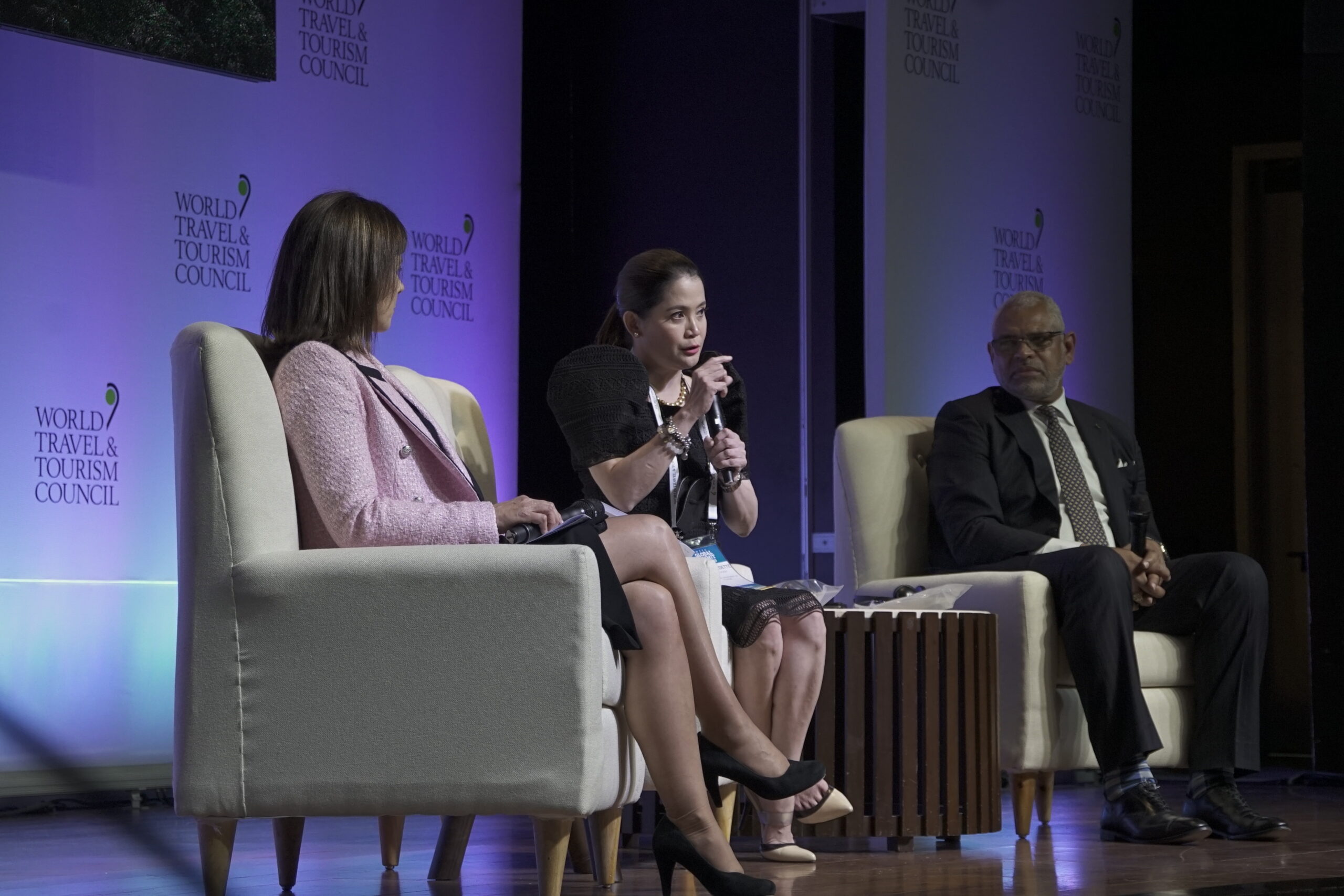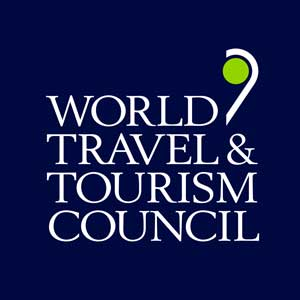The Philippines had once again put itself on the global map as a safe and ideal tourist destination in the new normal after successfully hosting the 21st World Travel & Tourism Council (WTTC) Global Summit from April 20-22, 2022, at the Marriott Hotel in Pasay City.


With the country’s first-ever hosting of what is touted as the most influential annual travel and tourism event, the Philippines has shown that it is capable of holding an event of such prestige, attended not only by international government delegations in the tourism sector, but also by top executives of hotels, airlines, travel agencies, tour operators, transportation, global distribution system, advertising and entertainment companies, destinations, and industry organisations.
The event was spearheaded by the Philippines Department of Tourism (DOT) led by Secretary Bernadette Romulo-Puyat who has expressed optimism for the local tourism industry, as the Philippines has ramped up its efforts in making the country a safe and ideal place to travel amid the pandemic. “In the nearly two years where international travel was put on hold, the Philippines has been busy preparing for the day when our country would be open to the world. We have put in place guidelines that will ensure the safety of our guests, our tourism workforce, and our community,” she emphasised during the summit opening press conference.

As early as September 2020, the Philippines was granted the use of the WTTC Safe Travels Stamp, the world’s first safety and hygiene stamp for travellers to recognise governments and businesses that have adopted global health standardised protocols. With this, the tourism sector in the Philippines is projecting a rosy outlook as the world navigates within the next normal, welcoming new trends and preferences of local and international travellers alike.
As restrictions ease on border entry, tourists will get to enjoy Philippine attractions which fit the new traveller preferences during and post-pandemic: open spaces, outdoor destinations, and nature reserves. With 98% of tourism workers fully-vaccinated, the country is further solidifying its promise to provide tourists a safe and enjoyable stay in the country.
Julia Simpson, CEO and President of WTTC, also presented the result of the organisation’s latest Economic Impact Report (EIR) on travel and tourism in the Philippines. Results showed how the local tourism industry is integral to the economy—in fact, it is projected to have an annual growth rate of 6.7% in the next 10 years, more than the overall economy average growth rate of 5.6%. The sector is also forecasted to generate 2.9 million new jobs, accounting for 21.5% of all jobs in the country.
“Our expert analysis shows that the travel and tourism economy has turned a corner and is firmly on the road to recovery,” Simpson shared. Showcasing the country’s cultural richness in arts, music, and food, a gala dinner on the second day of the summit was prepared for all delegates at the Philippine International Convention Center. Select delegates were also able to enjoy pre- and post-summit tours spearheaded by the Department of Tourism in various Philippine attractions, such as cultural and heritage sites in Manila and the provinces of Bataan and Ilocos; culinary, arts and eco-friendly sites in Quezon Province and Rizal; pristine beaches in Palawan and Boracay; nature and adventure sites in the Davao region; and potential investment sites in Pampanga and Tarlac.
Attended by over 1,000 delegates coming from more than 50 countries, a number double than expected, around 30 government delegations, 200 representatives from the media, and 10,000 virtual participants, the summit sessions touched on varying topics under the umbrella theme, “Rediscovering Travel.”
The first panel focused on the future of the sector as the world continues to navigate the pandemic and effectively co-exist with COVID-19. Travel and tourism industry leaders shared key learnings and insights on sustained changes that the sector needs to continue providing incredible experiences while maintaining the health and safety of travellers. In this session, Puyat stressed the importance of sustainability, synergy among other government agencies, and collaboration with the private sector to build a better tourism industry as these factors would essentially characterize and define the future of travel and tourism.
Travel with Confidence
With the population’s pent-up demand for travel making a comeback, the global travel and tourism sector rally behind instrumental initiatives to rebuild traveller confidence. The session was moderated by Aradhana Khowala, CEO and Founder of Aptamind Partners.
With borders and travel search demand volume going up, the eagerness to travel is complemented by changed mindsets, destinations, and travellers alike. To improve travel confidence, protect staff, and enable movement, the sector implemented rigorous health and hygiene protocols, together with required proof of vaccination or negative COVID test results.
New Trends on the Block

This session revealed several new trends for the year and how they may impact travelers, businesses, and destinations. Eva Stewart, Global Sector Head of Travel & Tourism at YouGov, shared data on big shifts in how travelers think and feel, stressing that these changes in consumer behavior must be well-noted by the industry.
For instance, 70% of travellers are more inclined to visit lesser-known destinations, while 55% are interested in carbon-negative travel. Stewart estimated that there are around 300 million sustainability-minded travelers around the world. She noted: “As an industry, if we help consumers find those options for less touristy places—perhaps more eco-friendly, more responsible lodging, that’s definitely going to help resonate with those responsible travellers.”
Through the Lens
To wrap up the first day of the summit proper, “Crazy Rich Asians” best-selling author Kevin Kwan candidly shared that he wanted to make his next movie in the Philippines. Academy Award-winning film producer Lawrence Bender joined the author in the panel, echoing his sentiments. Bender teased further details on Kwan’s upcoming creative project, as well as more reasons why they visited the Philippines, on top of the summit. The idea of a Kwan-led creative project based on the Philippines proves to be an exciting prospect, given the author’s principles on storytelling and its possible effects on local tourism. More than showcasing destinations and driving travel to new locations, Bender emphasised that when film crews come to certain destinations to create their movies, the local economy also benefits from it, from hiring local people to renting accommodations and local props, noting that it’s a “net positive” for the economy.
Our Journey to Regeneration

A critical session on the journey of the tourism industry toward regeneration cast the spotlight on major strides that the sector has accomplished and is working toward, from climate neutrality and plastic reduction to stimulating the growth and rehabilitation of wildlife and the natural environment. It also highlighted the issues that the industry, travelers, and communities need to be aware of, such as the expected record-level numbers of CO2 emissions by 2023.
Discussing how the sector can be even more proactive and intentional, not only to leave a lighter footprint but also to make a lasting difference, the Dumaliang sisters Ann and Billie of the Masungi Georeserve, further shared their insights on sustainable regenerative travel and tourism.
Ann Dumaliang noted that a lot of people seem to have limited the concept of sustainability to simply reducing plastic waste and offsetting carbon emissions. “We tend to forget we need to localize our approach and that means getting to know the places and understanding the geographical nature of the destinations we belong to,” she added. Meanwhile, Billie Dumaliang expressed her thoughts on how regenerative tourism is a “change in mindset.”
“It’s a paradigm shift from a tourism that leaves no trace to a kind of tourism to leave them better than they were before, both for businesses and for tourists. So I think the pandemic has reminded us that we are all organisms, a microscopic organism can actually have more power over us and can break down our systems, right, in a blink of an eye,” said Billie Dumaliang. She added that the pandemic amplified the importance of climate and biodiversity. “We as a sector that has impacted it has to take a leadership role, a very clear leadership role in achieving those targets.”
New Horizons
Individual sessions with Saudi Tourism Authority CEO Fahd Hamidaddin and Jeremy Jauncey talked about the possibilities within the digital space to shape the travel experience of the future.
Jauncey, the man behind the travel and lifestyle content multi-platform Beautiful Destinations, noted that digital is at the center of how the travellers of the future make their decisions. He called on the industry to rethink how they reach out to their customers and clientele. “Today, we live in a world where over 65% of millennial and Gen Z consumers believe that digital identity is more important than their physical one,” he shared.
With 90% of millennial and Gen Z consumers booking travels based on what they see on social media platforms, this should motivate the industry on how they should market travel and tourism experiences online–from ease of booking to delivering virtual moments prior to in-person destination offerings–making tourist locations conducive for creating digital content.
Cultivating a Sustainable Future
The last session of the summit featured Melati Wijsen, founder of the youth-driven Bye Bye Plastic Bags campaign that led to the banning of all single-use plastic bags in Bali in 2018. Now 21, Wijsen heads YOUTHTOPIA, a platform that helps the youth answer the question of how they can help make a change. It supports young people through masterclasses, mentorships, and workshops. Wijsen emphasized how private sectors move faster than the public sectors, and how it’s still equally crucial to engage with both to make an impact. “I think [the] private sector has a really incredible position to push further, to demand more, and lead by example for governments. [However,] it has to happen hand in hand,” the environmental activist supplied. Wijsen also stressed the need for companies to have sustainability initiatives be integrated in how they do business and be more than just one-off projects or marketing campaigns for corporate social responsibility (CSR) departments.
WTTC Summit in Saudi Arabia
The global summit was capped off with the announcement of the 22nd WTTC Global Summit, happening in Riyadh, capital city of the Kingdom of Saudi Arabia, from November 29 to December 2 this year.






